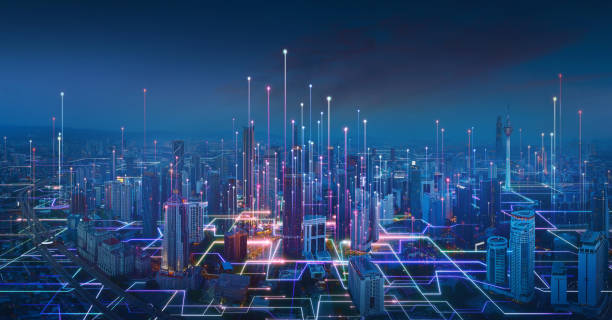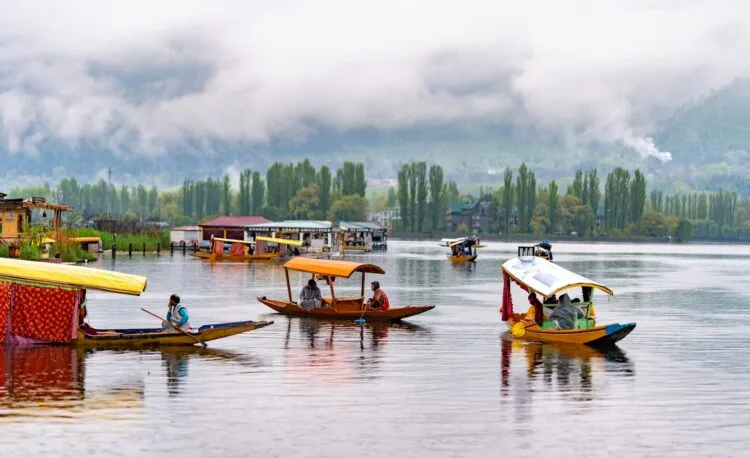For decades, the Gulf’s global image was built around one word: oil. It was the black gold that turned deserts into megacities, funded futuristic skylines, and transformed small fishing villages into global powerhouses. But today, a quiet yet powerful revolution is underway. The Gulf Cooperation Council (GCC) nations—Saudi Arabia, the United Arab Emirates (UAE), Qatar, Oman, Bahrain, and Kuwait—are moving beyond oil with bold, strategic transformations.
The drive toward economic diversification is not just a vision anymore—it’s in full motion. A blend of global urgency, economic foresight, and visionary leadership is pushing the Gulf toward a future rooted in innovation, sustainability, and knowledge. The shift is massive, ambitious, and, above all, deeply human.
Why the Gulf Is Moving Beyond Oil
The move to diversify is not purely about ambition—it’s about survival. While oil has brought immense wealth, the world is changing. Global demand is shifting toward clean and renewable energy. Climate concerns are mounting. And economic shocks like the COVID-19 pandemic and volatile oil prices have exposed the risks of over-reliance on a single resource.
For the Gulf countries, the writing on the wall is clear: to sustain long-term prosperity, they must evolve. Leaders across the region are pursuing comprehensive national visions aimed at building future-ready, resilient economies that stand strong even in a post-oil world.
National Visions: A Blueprint for the Future

Each Gulf country has charted a unique course through strategic frameworks that prioritize innovation, sustainability, and economic diversity.
Saudi Arabia’s Vision 2030, for example, is a transformative roadmap that seeks to open the kingdom to the world. It emphasizes tourism, entertainment, culture, and non-oil industries. Projects like NEOM—a $500 billion futuristic city powered by AI and renewable energy—are the centerpiece of this vision.
The UAE is already known for its bold initiatives. Dubai and Abu Dhabi have positioned themselves as global business hubs, and their plans are only getting more ambitious. Dubai aims to be the world’s best city by 2040, while Abu Dhabi is investing heavily in culture, tech, and education as part of its long-term vision.
Qatar, with its National Vision 2030, is focused on transforming into an advanced, self-sustaining economy with strong environmental and human development. Hosting the 2022 FIFA World Cup was not just a sporting milestone but also a strategic move to put Qatar on the global map for tourism, culture, and investment.
Tech and Innovation: Building Digital Powerhouses
If oil was the fuel of the 20th century, data is the fuel of the 21st. The Gulf is rapidly embracing this shift, investing in technology as a foundational pillar of its economic diversification.
Saudi Arabia is leading massive investments in artificial intelligence, cloud computing, and digital infrastructure. NEOM is being built as a living laboratory of smart technologies—from autonomous mobility to cognitive buildings.
The UAE, long ahead in digital transformation, is scaling up its ambitions. Dubai has implemented paperless government services and launched blockchain strategies. Abu Dhabi’s tech ecosystem is booming with startups, accelerators, and investors attracted to its supportive regulatory environment and access to global markets.
Across the Gulf, smart city projects, fintech hubs, and AI initiatives are transforming the economic landscape, creating new industries and job opportunities that never existed before.
A Booming Tourism Economy

Tourism is quickly becoming one of the region’s most dynamic sectors—and it’s no accident. Gulf nations are repositioning themselves as destinations for global travelers seeking unique experiences, rich history, and luxurious hospitality.
Saudi Arabia, once closed to foreign tourists, now offers e-visas and is investing billions in tourism development. From ancient ruins in AlUla to mega festivals like MDLBEAST Soundstorm, the kingdom is going all-in on becoming a cultural destination.
The UAE continues to lead the way with its blend of modern attractions and traditional heritage. From the Burj Khalifa to the Louvre Abu Dhabi, it’s creating an irresistible mix for tourists from every corner of the world.
Oman is highlighting its natural beauty and eco-tourism potential, while Bahrain and Kuwait are exploring niche markets including wellness, diving, and cultural tourism.
These efforts are not just about attracting tourists—they’re about creating jobs, building local economies, and showcasing the Gulf’s rich, often overlooked, cultural heritage.
Green Energy and Sustainability
Perhaps the most symbolic step away from oil is the Gulf’s commitment to green energy. From solar farms in the deserts of the UAE to wind projects in Saudi Arabia, the region is tapping into its natural advantages to fuel the next energy revolution.
The UAE has become a regional leader in renewables with initiatives like Masdar City and some of the world’s largest solar plants. Saudi Arabia is aiming to generate 50% of its power from renewables by 2030, with projects that reflect serious long-term investment rather than mere experiments.
Oman and Qatar are making significant strides in solar and green hydrogen, preparing to export clean energy globally. The shift toward renewables is helping the Gulf countries meet climate goals while also creating a new economic engine that complements their traditional strengths.
Education and Knowledge Economies
As the Gulf transforms, education systems are being reimagined to prepare citizens for a diversified, digital-first economy. Countries are pouring resources into STEM education, international collaborations, and research hubs that empower youth with the skills of tomorrow.
In Saudi Arabia, universities are aligning programs with Vision 2030 goals. In the UAE, international campuses like NYU Abu Dhabi and Sorbonne University are fostering a multicultural, high-performance academic environment. Qatar’s Education City hosts several prestigious institutions, creating a regional hub for research and innovation.
These investments are not just about credentials—they’re about cultivating a new mindset: one that values creativity, problem-solving, and entrepreneurship. The future Gulf workforce is being trained not to rely on oil, but to build entirely new industries from scratch.
Culture, Film, and the Creative Economy
An equally powerful shift is happening in the cultural space. The Gulf is no longer importing culture—it’s producing it. Whether it’s film festivals in Saudi Arabia, art exhibitions in Qatar, or literary salons in Dubai, the region is emerging as a creative powerhouse.
Saudi Arabia’s burgeoning film industry is nurturing local talent and bringing Saudi stories to global screens. The Red Sea Film Festival and production-friendly policies are helping build an entertainment economy that both educates and entertains.
Meanwhile, the UAE is investing heavily in arts and museums, creating a cultural infrastructure that attracts artists, curators, and collectors from around the globe. These creative ventures are helping diversify the economy while also reshaping the Gulf’s global image.
Entrepreneurship and the Private Sector
One of the most exciting outcomes of this diversification drive is the rise of entrepreneurship. With access to capital, mentorship, and infrastructure, Gulf-based entrepreneurs are launching startups across sectors—from healthtech to logistics to sustainability.
Governments are nurturing this trend by reducing red tape, offering tax incentives, and creating free zones dedicated to innovation. This pro-business environment is attracting not just local founders but also international startups looking to scale in the Middle East and beyond.
At the same time, family-owned businesses, which have long been the backbone of Gulf economies, are modernizing and expanding into new sectors. This blend of traditional enterprise and modern innovation is creating a dynamic business landscape full of potential.
The Road Ahead
The Gulf’s journey beyond oil is not without challenges. Economic reform takes time. Balancing tradition with modernization requires careful policy-making and public support. But the region’s commitment to diversification is clear—and irreversible.
What we’re witnessing is a generational shift. A region long defined by oil is now telling a new story—one of vision, creativity, sustainability, and resilience. From tech and tourism to culture and clean energy, the Gulf is not just preparing for a future without oil—it’s actively shaping it.
And in doing so, it’s inspiring the world with a powerful message: even the most deeply rooted identities can evolve. All it takes is vision, courage, and a willingness to embrace change.
Also read: Fire Station Road in Muwaileh: A Growing Spot Full of Surprises
Do follow: https://uaestories.com/


